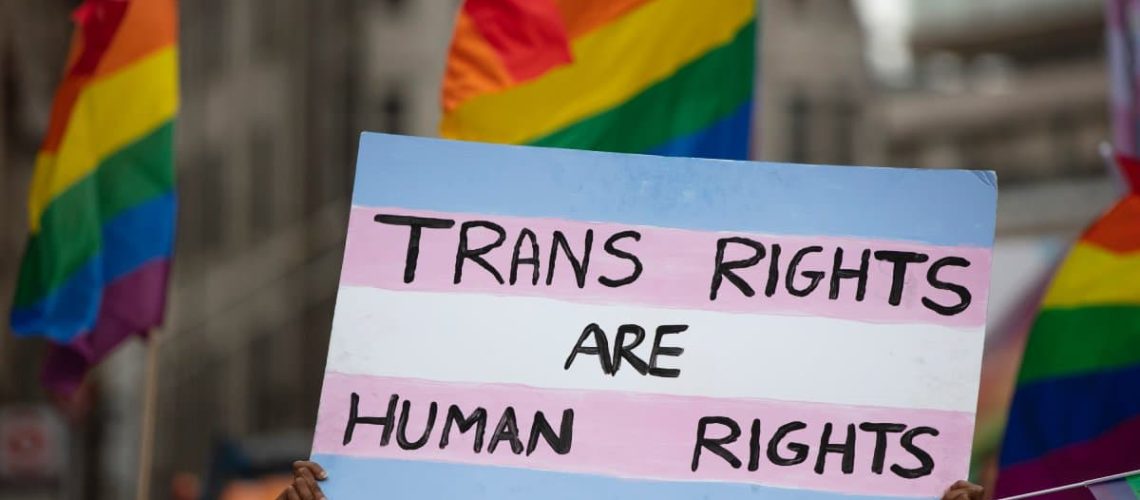As the 2024 U.S. presidential election approaches, Kamala Harris has taken center stage as the Democratic nominee after President Joe Biden stepped aside and endorsed her. Harris’s stance on gender identity and LGBTQ+ rights has made her a significant figure in the ongoing cultural debates in the U.S. Her policies contrast sharply with her Republican challengers, like Donald Trump and Ron DeSantis, who have both campaigned aggressively against transgender rights and what they call “radical gender ideology.”
Kamala Harris’s Platform: Expanding Transgender Rights
Kamala Harris has long been an advocate for LGBTQ+ rights, and in 2024 she has promised to further protect transgender Americans if elected president. Harris, who supported numerous LGBTQ+ initiatives as Vice President, has made it clear that her administration would expand federal protections for transgender individuals. Among her key promises are to bolster healthcare access for transgender people, particularly ensuring that they can receive gender-affirming care without facing discrimination.
In a rally earlier this year, Harris stated, “Every person deserves dignity, and we will not allow discrimination against transgender Americans to stand.” Her campaign has drawn significant support from LGBTQ+ groups, with the Human Rights Campaign (HRC), the largest LGBTQ+ rights organization in the U.S., officially endorsing her after Biden’s withdrawal from the race.
Harris’s campaign is also focused on education, where she has promised to protect transgender students’ rights in schools. Her platform includes ensuring that transgender students can participate in sports and use facilities that align with their gender identity, continuing the policies her administration implemented as part of the Biden-Harris White House. Harris is expected to maintain and expand Title IX protections for transgender students, fighting back against the numerous state-level laws that have sought to limit these rights.
Republican Opposition: Trump and DeSantis on Gender Ideology
Republican candidates Donald Trump and Ron DeSantis have taken a strong stance against Harris and her platform on gender identity. Both candidates have framed transgender rights as part of a “radical agenda” that they believe undermines traditional values. Trump, who is seeking to return to the White House, has promised to reinstate the ban on transgender individuals serving in the military and eliminate federal funding for gender-affirming care. “We will stop the left’s indoctrination of children with their dangerous gender theories,” Trump has stated at multiple campaign events.
Meanwhile, Ron DeSantis has used his governorship in Florida to pass some of the strictest anti-transgender legislation in the country, including the infamous “Don’t Say Gay” law, which limits discussions of gender identity and sexual orientation in schools. DeSantis has vowed to take these policies to the national level if he wins the presidency. His administration has also moved to block gender-affirming care for minors, a policy that Harris has criticized as a dangerous violation of human rights.
Polling from Pew Research reveals a stark division among voters on the issue of gender identity. About 65% of Americans believe that a person’s gender is determined by their biological sex at birth, while 34% believe that gender identity can differ from biological sex. These views are deeply partisan, with nearly 90% of Republican voters agreeing with the former, compared to 59% of Democrats who believe in gender fluidity.
The Role of Schools in the Debate
One of the most contentious aspects of the gender identity debate in the 2024 race is its role in education. Harris has made it clear that public schools should be inclusive environments where all students, including transgender children, feel safe and supported. Her campaign has committed to upholding and expanding policies that protect transgender students from discrimination in schools. This includes ensuring that students can participate in activities and sports according to their gender identity, a policy that Harris believes is critical to creating an inclusive educational environment.
In contrast, Trump and DeSantis have both promised to remove gender identity discussions from schools entirely. DeSantis has already implemented similar measures in Florida, and he has stated that his administration would take similar steps nationwide. Trump, for his part, has criticized Harris’s education policies as “indoctrination,” promising to restore what he calls “common sense” values in schools.
What’s at Stake in 2024
The 2024 election will likely determine the future of transgender rights in the U.S., as the candidates present starkly different visions for the country. Harris represents a continuation of the Biden administration’s progressive stance on gender identity, with a focus on protecting and expanding the rights of transgender Americans. On the other hand, Trump and DeSantis are rallying conservative voters with promises to roll back many of these protections.
The outcome of this election could impact everything from healthcare access to school policies, making gender identity one of the defining issues of the race. LGBTQ+ advocates, who have rallied behind Harris, see the election as a critical moment for the future of civil rights in America, while conservatives view it as an opportunity to push back against the cultural shifts of the past decade.
In the coming months, voters will decide which direction the country will take—whether it continues to expand LGBTQ+ protections under Harris or returns to a more conservative approach under a Republican administration. The stakes have never been higher for the transgender community and their allies.
21 Beliefs About the Bible That Are Actually False

The Bible is one of the most discussed and debated books in history, yet many common beliefs about it are more myth than fact. How many of these misconceptions have you heard before? 21 Beliefs About the Bible That Are Actually False
21 Subtle Racisms That Are Commonplace in America

Racism in America isn’t always overt; it often hides in plain sight through subtle actions and attitudes. How many of these subtle racisms have you noticed around you? 21 Subtle Racisms That Are Commonplace in America
Featured Image Credit: Shutterstock /Ink Drop.
This post first appeared on Pulse of Pride.

